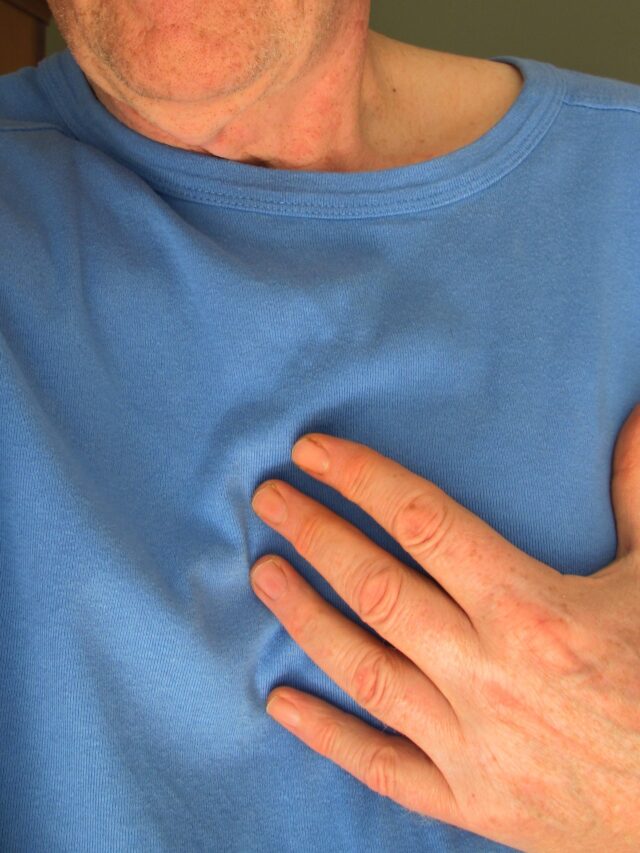BETA BLOCKER –
what is a beta blocker?
Beta-blockers are also known as beta-adrenergic blockers.
The medicine in this group is used to inhibit or stop the adrenergic response mediated through beta receptors.
Written by- Dr. Jitesh Kumar (MBBS MD MEDICINE)
LOCATION- INDIA

BETA-BLOCKER TYPES –
Beta Blocker are of two types-
1) NON-SELECTIVE – Propranolol, Sotalol, Pindolol, Labetalol, carvedilol.
2) CARDIOSELECTIVE– Metoprolol, Atenolol, Esmolol, Betaxolol.
BETA-BLOCKER USES –
1) HYPERTENSION – These medicines are used by doctors to control the blood pressure of patients. Sometimes they are used with other antihypertensive medicines to control blood pressure.
2) CARDIAC ARRHYTHMIA – They can help to control tachycardia (increased heart rate), atrial fibrillation, and flutter.
3) ANGINA PECTORIS- Chest pain frequency is reduced if these medicines are used regularly as prescribed by the doctor but high doses can increase the frequency of chest
pain as they can reduce the coronary blood flow.
4) MYOCARDIAL INFARCTION- Beta blockers perform two important functions in this disease.
The first and most important function is that if the intra-venous beta blocker is given within the first four to six hours of myocardial infarction then it helps to reduce the infarct size.
Secondly, if it is used for long after infarction then it can decrease the chances of myocardial infarction in the future.
5) PHEOCHROMOCYTOMA – In patients suffering from this disease beta-blockers should be given only after giving alpha-blockers to the patients otherwise it can lead to an uncontrolled rise in blood pressure.
6) MIGRAINE- Doctors prescribe it as prophylaxis in migraine patients which can be continued for a long duration for better results.
7) THYROTOXICOSIS- These medicines are given to hyperthyroidism patients by doctors to control symptoms like palpitations, tremors, sweating, and arrhythmia.
8) GLAUCOMA – Beta-blockers in the form of eye drops are helpful for patients suffering from glaucoma.
9) ESSENTIAL TREMOR- Beta blockers especially beta 1 and beta 2 can help in essential tremors however they do not have an effect on Parkinson’s disease-related tremors.
10) DISSECTING AORTIC ANEURYSM – These medicines can decrease the contractile force and pulsation of the heart and hence prove beneficial in an aneurysm.
11) CARDIOMYOPATHY – Beta blockers can normalize the cardiac output of the heart and provide relief to the patients.
11 SIDE EFFECTS OF BETA-BLOCKERS-
1) HEART FAILURE- These medicines can increase myocardial insufficiency ( decrease in the function of heart muscles) and hence lead to congestive heart failure especially when the heart is under stress.
But when cardiac stress is decreased then these medicines are prescribed by doctors to improve the survival rate of the patients.
2) BRADYCARDIA– A decrease in heart rate or bradycardia can occur in some patients especially those suffering from SA NODE (sino Atrial) disease. Heart rate can drop below 50 also in some patients.
3) DYSPNEA- Patients suffering from lung diseases like asthma and chronic obstructive lung disease can get worse after starting beta-blockers as these medicines can increase bronchial resistance by blocking the beta 2 receptor.
4) CNS PROBLEM– Nightmares, forgetfulness, and behavioral changes are also seen in some patients due to beta blockers.
5) HYPERLIPIDEMIA- These medicines can block lipolysis ( breakdown of lipids) which can lead to high cholesterol levels in some patients.
6) HYPOGLYCEMIA- Patients who are diabetic can have delayed recovery from hypoglycemia episodes induced by insulin or other anti-diabetic medicine. Beta-blockers suppress the signs of hypoglycemia and patients can get severe hypoglycemia before showing any signs or symptoms.
7) ANGINA (chest pain) – It can worsen the condition of the patient suffering from variant angina due to vasoconstriction.
8) CARDIAC ARREST – These medicines should be avoided in patients suffering from partial or complete heart block as it can lead to cardiac arrest.
9) SEXUAL DISTRESS – It is seen especially in male patients on prolonged use of beta blockers where patient complaints of decrease in sexual desire.
10) TIREDNESS – Muscles won’t get extra blood supply as the beta receptor responsible for increasing the blood supply to the muscle is suppressed and it leads to tiredness.
11) COLD HAND AND FEET – It can occur in patients on these medicines as they can suppress the beta receptor responsible for vasodilatation.
MEDICINE INTERACTION-
1) DIGITALIS – If beta blockers are taken with medicine like Digitalis or Verapamil then cardiac arrest can occur due to depression of the SA Node and AV Node.
2) NSAIDs – These pain relief medicines can decrease the antihypertensive effect of beta blockers.
3) COUGH MEDICINE – Phenylephrine and ephedrine present in cough medicine can cause an increase in blood pressure.
4) CIMETIDINE – It is used for acidity relief but it can decrease the metabolism of the beta blocker.
OTHER IMPORTANT POINTS-
1) If a patient is taking these medicines to control the blood pressure, then it should not be stopped suddenly but it should be stopped gradually and slowly otherwise it can lead to serious and uncontrolled rise in blood pressure. (REBOUND HYPERTENSION).
2) These medicines perform better in controlling blood pressure if taken with food as food decreases the first-pass metabolism.
3) If the patient feels any side effects after taking this medicine then they should immediately contact the doctor and describe the problem in detail and the doctor will decide whether to change the medicine or continue. Patients should never take or stop medicine by themselves as it can have serious side effects.
4) It is important to give your detailed medical history to the doctor and also inform them about the current medication you are taking as it can help the doctor to decide whether to start you on a beta blocker or some other anti-hypertensive medicine.
5) Pregnant women and breastfeeding mothers with hypertension should inform the doctor before they prescribe you any beta blockers.
6) Always take antihypertensive medicine on time as prescribed by the doctor and inform your healthcare professional of any missed dose.
7) Doctors should always do blood glucose, lipid profile, ECG, and other important tests before and during the hypertension treatment with beta-blocker medicines.
TAKE HOME MESSAGE-
BETA BLOCKERS ARE TO BE USED ONLY WHEN YOUR DOCTOR PRESCRIBES THEM AND NEVER USE ANY MEDICINE ON YOUR OWN OR SOME RANDOM PERSON’S ADVICE AS IT CAN SERIOUSLY HARM YOUR HEALTH.
STAY HEALTHY AND FIT.
COMMENTS ARE ALWAYS WELCOME.








